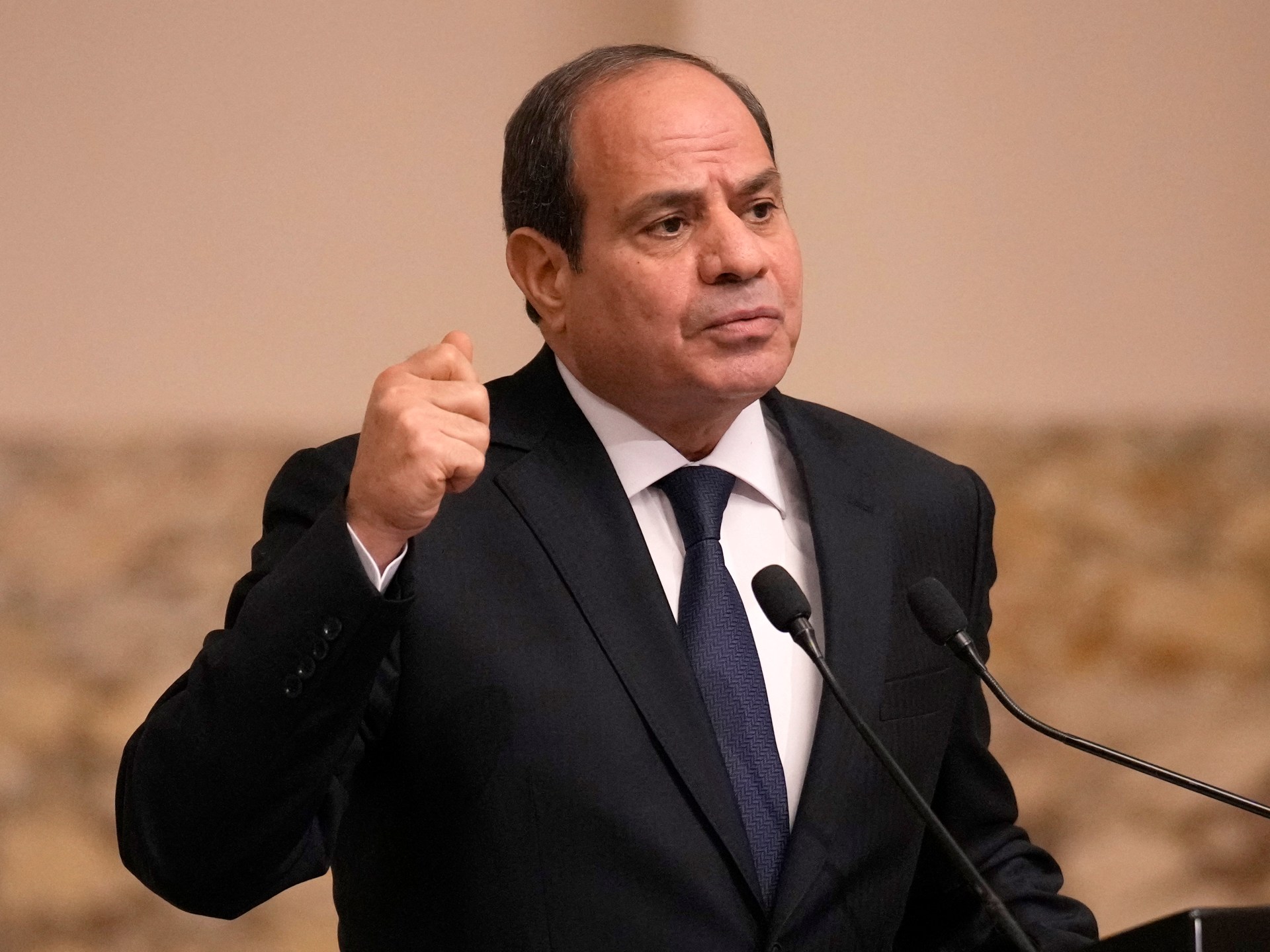
Egypt’s President Abdel Fattah el-Sisi is returning to the polls in a bid to extend his presidency for a third term.
The face may be the same, but the circumstances are different when Egyptians cast their vote on December 10th.
The economy is in one Tailspintempered by support from foreign partners concerned that Egypt’s downturn is triggering regional destabilization not seen since 2011, including new migration flows to Europe and beyond.
Outside Egypt’s borders, its neighbors are embroiled in seemingly intractable conflicts. A civil war is raging in Sudan, and in Libya, rival governments are vying for power on Cairo’s doorstep.
In 2022, Egypt’s public debt was over 88 percent of the country’s GDP, more than double the region’s average. Inflation has been consistently above 35 percent since June.
Across the country, amid shrinking household finances, record numbers of Egyptians are reportedly looking for second jobs while reducing their household spending, including less and cheaper food. However, many analysts expect al-Sisi to win the upcoming election.
Government
During his nine years in office, the president has consolidated his power.
Critics such as the experienced publisher and government critic Hisham Kassem, languish in prison. In 2019, a constitutional referendum in Egypt resulted in the presidential term being extended to six years. Ahead of the referendum results, internet monitoring organization NetBlocks said it had tracked 34,000 websites, including “technology startups and self-help sites.” [and] Celebrity Homepages” that had been closed.
Against this backdrop, al-Sisi’s closest rival, the leftist Ahmed el-Tantawy, withdrew his candidacy in October, claiming he had carried out a campaign of intimidation that included tapping his phone.
Egypt’s National Electoral Authority described all of his allegations as unfounded. Meanwhile, the Egyptian president appears to have the army’s unwavering support. And he has no clear opponent.
“Even if the public could imagine a policy alternative, the opposition remains in disarray,” said David Butter, an associate fellow at Chatham House. “A big part of the idealism of the revolution [of 2011] was overshadowed by the Muslim Brotherhood campaign that led to chaos and ultimately al-Sisi.
“For many people across Egypt, al-Sisi’s presidency is simply a fact.”
Business
Egypt is facing major economic challenges. Even before Russia invaded Ukraine in February 2022, domestic production was already struggling to meet the needs of the Middle East’s most populous country. The resulting international grain shortage transformed the already prevailing food crisis into an existential economic threat.
Price increases for Egypt’s subsidized basic goods are making them unaffordable for many. According to the latest available government figures from 2020, the poverty rate had reached around 30 percent.
The Egyptian pound has fallen to around 50 against the US dollar on the black market, compared to an official rate of 31.
Debt repayments scheduled to begin next year total $42.26 billion, and many analysts expect austerity measures could be introduced after the election.
The government has now pushed ahead with several mega-projects, such as the construction of a new capital outside Cairo.
Over the past decade, the United Arab Emirates and Saudi Arabia have extended millions of dollars in credit lines to beleaguered Cairo. The IMF has provided a $3 billion loan, the fourth such support in the last six years. The public debt, which is estimated to represent around 85 percent of Egypt’s annual output, has led to a dollar crisis as both the public and the public sector have led to a dollar crisis The government is fighting for hard currency Either to get their household through the week or to release millions of imports sitting in ports across the country waiting for duty to be paid.
Regional impact and balance
Some analysts believe Egypt’s influence in its neighborhood and beyond has declined in recent years.
“The once leading power in the Middle East has lost regional and international relevance,” said Riccardo Fabiani, project manager of the Crisis Group from Egypt. These analysts argue that in Libya and Sudan, both neighbors, other regional powers play a larger role.
But many others, including in Egypt, disagree. They point to Egypt’s successes in combating armed groups and its success as a regional power broker while operating on an equal footing with its Gulf counterparts. Analysts in Egypt have also pointed to the crucial role Cairo played in negotiations between Israel and Hamas and in securing new aid for those besieged in the Gaza Strip.
Perhaps the greatest evidence of Egypt’s strategic influence lies in how a number of nations and global organizations have stepped up to help the country address its economic challenges.”
Egypt is in debt to almost everyone,” Butter said. “However, no one has any interest in Egypt being destabilized.”
The crisis in Gaza is adding to Egypt’s challenges, which is why “the IMF is already increasing its support,” he said, adding that it also reflects the sentiment among Egypt’s supporters in the US, Europe and the Gulf. All of this “gives Egypt outsized influence in demanding more aid to the Gaza Strip,” Fabiani said.
In Egypt’s last elections in 2014 and 2018, where voter turnout varied, 97 percent voted for President el-Sisi. Within days, Egypt is likely to achieve another victory.
But in a country facing an economic crisis and in a region grappling with numerous wars and divisions, a third term for al-Sisi is unlikely to be any easier than the first two.






Recent Comments